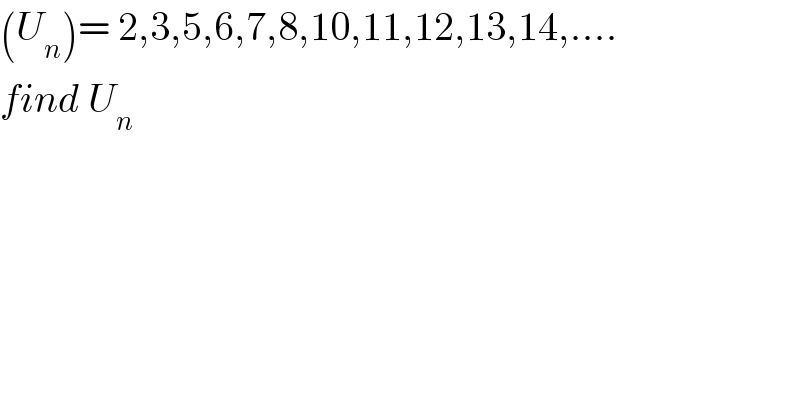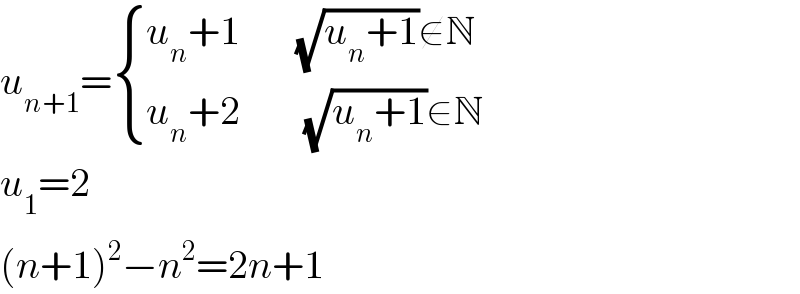
Question Number 7562 by Master Moon last updated on 03/Sep/16

$$\left({U}_{{n}} \right)=\:\mathrm{2},\mathrm{3},\mathrm{5},\mathrm{6},\mathrm{7},\mathrm{8},\mathrm{10},\mathrm{11},\mathrm{12},\mathrm{13},\mathrm{14},.... \\ $$$${find}\:{U}_{{n}} \\ $$
Commented by Rasheed Soomro last updated on 03/Sep/16

$${Perfect}\:{square}\:{numbers}\:{have}\:\:{been}\:{excluded}\:{from} \\ $$$${natural}\:{numbers}. \\ $$
Commented by 123456 last updated on 04/Sep/16

$${u}_{{n}+\mathrm{1}} =\begin{cases}{{u}_{{n}} +\mathrm{1}\:\:\:\:\:\:\:\sqrt{{u}_{{n}} +\mathrm{1}}\notin\mathbb{N}}\\{{u}_{{n}} +\mathrm{2}\:\:\:\:\:\:\:\:\sqrt{{u}_{{n}} +\mathrm{1}}\in\mathbb{N}}\end{cases} \\ $$$${u}_{\mathrm{1}} =\mathrm{2} \\ $$$$\left({n}+\mathrm{1}\right)^{\mathrm{2}} −{n}^{\mathrm{2}} =\mathrm{2}{n}+\mathrm{1} \\ $$
